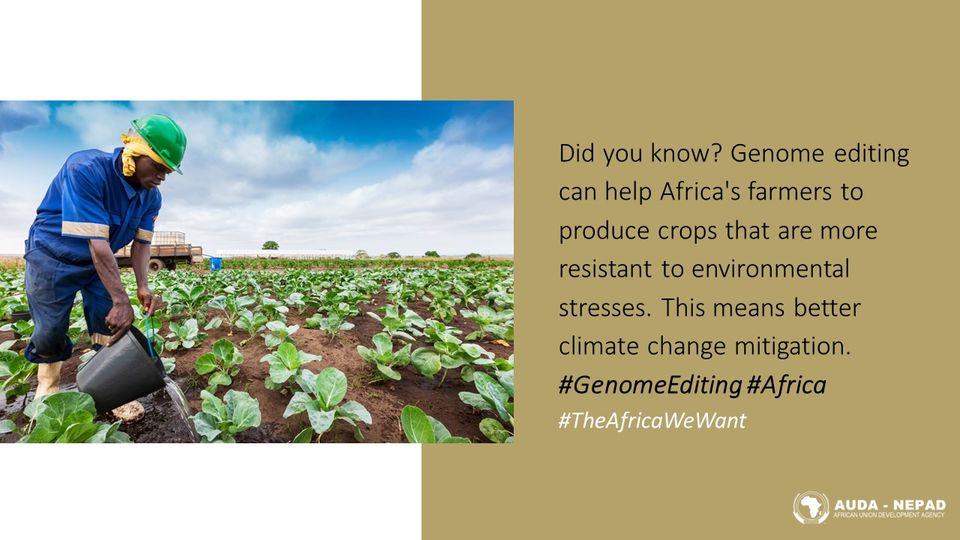|
Getting your Trinity Audio player ready...
|
The African Union Development Agency (AUDA-NEPAD) through its Centre of Excellence in Science, Technology, and Innovation is running the Genome Editing (GEd) project meant to foster a broader understanding of modern biotechnology focusing on GEd among different stakeholder groups through communication and advocacy for enhanced uptake of the tool to optimize agriculture in Africa.
This emerged during the Writing Workshop to Develop a Genome Editing National Communication and Advocacy Strategy for Zimbabwe that was held from 15-19 May 2023 in Harare.
The goals are to achieve key development outcomes, such as adapting to climate change, poverty reduction, and enhancing food systems to improve livelihoods. The communication and advocacy exercise targeted senior officials in government, research and development (R&D) institutions, media, faith-based institutions, and the private sector towards co-creation for commercialization.
Zimbabwe’s National Biotechnology Authority Chief Executive Officer and Registrar, Dr. Deckster T. Savadye said the project builds on and complements ongoing AUDA-NEPAD efforts towards enhancing regulatory capacities on Biosafety through the African Biosafety Network of Expertise (ABNE).
“While ABNE’s focus is on regulation to ensure biosafety, the AUDA-NEPAD Centre of Excellence in Science, Technology, and Innovation brings in a focus on innovation and R&D capacities towards the commercialization of genome-edited agricultural products thus contributing to rapid industrialisation. This is from the recognition as contained In Agenda 2063 that technological advancements from biotechnological innovations in plant and animal breeding have the potential to advance continental agricultural sustainability goals and transform African societies,” Dr. Savadye said.
Following the successful Genome Editing sensitization exercise that included engagement with high-level officials towards the buy-in of the tool in the following eight (8) countries: Burkina Faso, Ghana, Ethiopia, Nigeria, Zambia, Mozambique, Zimbabwe, and Eswatini, the writing workshop held in Zimbabwe was the next step to draft and develop a responsive National Communication and Advocacy Strategy and Action Plan for validation by stakeholders.
The specific issues identified in Zimbabwe during the consultation exercise will form the basis upon which the communication strategy and related action plan will be designed to guide a full-fledged advocacy exercise on genome editing and its potential to contribute to the optimisation of agriculture in Africa.
As part of the project, the development of a genome editing communication strategy and action plan will enhance public, government, private sector, and media confidence in agricultural research and modern biotechnology. This is envisaged to help solidify the basis upon which the Government and other actors will effectively champion the upscaling of locally adapted genome editing and related products for commercialisation.






